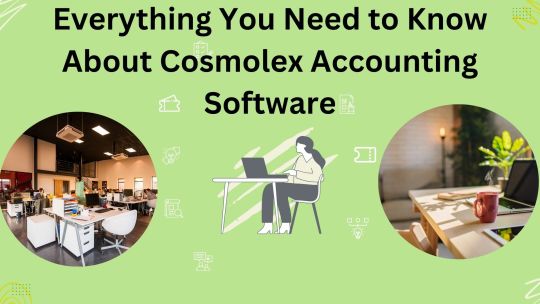#legal time and billing software
Explore tagged Tumblr posts
Text
0 notes
Text
Best Legal Time and Billing Software
Optimize your legal practice with their legal time and billing software. Streamline time tracking, invoicing, and expense management, ensuring accuracy and efficiency in your billing processes. Their user-friendly interface and customizable features cater to the unique needs of legal professionals, empowering you to manage your practice with precision and ease while maximizing profitability and client satisfaction. For more details you can visit their website.
0 notes
Text
Best Legal Time and Billing Software
Are you searching for the legal time and billing software? then you must visit at Atlantic Associates. It helps manage billable hours, expenses, and client billing, ensuring accuracy, efficiency, and compliance with legal accounting standards. For more details you can visit their website.
1 note
·
View note
Text
The US Copyright Office frees the McFlurry

I'll be in TUCSON, AZ from November 8-10: I'm the GUEST OF HONOR at the TUSCON SCIENCE FICTION CONVENTION.

I have spent a quarter century obsessed with the weirdest corner of the weirdest section of the worst internet law on the US statute books: Section 1201 of the Digital Millennium Copyright Act, the 1998 law that makes it a felony to help someone change how their own computer works so it serves them, rather than a distant corporation.
Under DMCA 1201, giving someone a tool to "bypass an access control for a copyrighted work" is a felony punishable by a 5-year prison sentence and a $500k fine – for a first offense. This law can refer to access controls for traditional copyrighted works, like movies. Under DMCA 1201, if you help someone with photosensitive epilepsy add a plug-in to the Netflix player in their browser that blocks strobing pictures that can trigger seizures, you're a felon:
https://lists.w3.org/Archives/Public/public-html-media/2017Jul/0005.html
But software is a copyrighted work, and everything from printer cartridges to car-engine parts have software in them. If the manufacturer puts an "access control" on that software, they can send their customers (and competitors) to prison for passing around tools to help them fix their cars or use third-party ink.
Now, even though the DMCA is a copyright law (that's what the "C" in DMCA stands for, after all); and even though blocking video strobes, using third party ink, and fixing your car are not copyright violations, the DMCA can still send you to prison, for a long-ass time for doing these things, provided the manufacturer designs their product so that using it the way that suits you best involves getting around an "access control."
As you might expect, this is quite a tempting proposition for any manufacturer hoping to enshittify their products, because they know you can't legally disenshittify them. These access controls have metastasized into every kind of device imaginable.
Garage-door openers:
https://pluralistic.net/2023/11/09/lead-me-not-into-temptation/#chamberlain
Refrigerators:
https://pluralistic.net/2020/06/12/digital-feudalism/#filtergate
Dishwashers:
https://pluralistic.net/2021/05/03/cassette-rewinder/#disher-bob
Treadmills:
https://pluralistic.net/2021/06/22/vapescreen/#jane-get-me-off-this-crazy-thing
Tractors:
https://pluralistic.net/2021/04/23/reputation-laundry/#deere-john
Cars:
https://pluralistic.net/2023/07/28/edison-not-tesla/#demon-haunted-world
Printers:
https://pluralistic.net/2022/08/07/inky-wretches/#epson-salty
And even printer paper:
https://pluralistic.net/2022/02/16/unauthorized-paper/#dymo-550
DMCA 1201 is the brainchild of Bruce Lehmann, Bill Clinton's Copyright Czar, who was repeatedly warned that cancerous proliferation this was the foreseeable, inevitable outcome of his pet policy. As a sop to his critics, Lehman added a largely ornamental safety valve to his law, ordering the US Copyright Office to invite submissions every three years petitioning for "use exemptions" to the blanket ban on circumventing access-controls.
I call this "ornamental" because if the Copyright Office thinks that, say, it should be legal for you to bypass an access control to use third-party ink in your printer, or a third-party app store in your phone, all they can do under DMCA 1201 is grant you the right to use a circumvention tool. But they can't give you the right to acquire that tool.
I know that sounds confusing, but that's only because it's very, very stupid. How stupid? Well, in 2001, the US Trade Representative arm-twisted the EU into adopting its own version of this law (Article 6 of the EUCD), and in 2003, Norway added the law to its lawbooks. On the eve of that addition, I traveled to Oslo to debate the minister involved:
https://pluralistic.net/2021/10/28/clintons-ghost/#felony-contempt-of-business-model
The minister praised his law, explaining that it gave blind people the right to bypass access controls on ebooks so that they could feed them to screen readers, Braille printers, and other assistive tools. OK, I said, but how do they get the software that jailbreaks their ebooks so they can make use of this exemption? Am I allowed to give them that tool?
No, the minister said, you're not allowed to do that, that would be a crime.
Is the Norwegian government allowed to give them that tool? No. How about a blind rights advocacy group? No, not them either. A university computer science department? Nope. A commercial vendor? Certainly not.
No, the minister explained, under his law, a blind person would be expected to personally reverse engineer a program like Adobe E-Reader, in hopes of discovering a defect that they could exploit by writing a program to extract the ebook text.
Oh, I said. But if a blind person did manage to do this, could they supply that tool to other blind people?
Well, no, the minister said. Each and every blind person must personally – without any help from anyone else – figure out how to reverse-engineer the ebook program, and then individually author their own alternative reader program that worked with the text of their ebooks.
That is what is meant by a use exemption without a tools exemption. It's useless. A sick joke, even.
The US Copyright Office has been valiantly holding exemptions proceedings every three years since the start of this century, and they've granted many sensible exemptions, including ones to benefit people with disabilities, or to let you jailbreak your phone, or let media professors extract video clips from DVDs, and so on. Tens of thousands of person-hours have been flushed into this pointless exercise, generating a long list of things you are now technically allowed to do, but only if you are a reverse-engineering specialist type of computer programmer who can manage the process from beginning to end in total isolation and secrecy.
But there is one kind of use exception the Copyright Office can grant that is potentially game-changing: an exemption for decoding diagnostic codes.
You see, DMCA 1201 has been a critical weapon for the corporate anti-repair movement. By scrambling error codes in cars, tractors, appliances, insulin pumps, phones and other devices, manufacturers can wage war on independent repair, depriving third-party technicians of the diagnostic information they need to figure out how to fix your stuff and keep it going.
This is bad enough in normal times, but during the acute phase of the covid pandemic, hospitals found themselves unable to maintain their ventilators because of access controls. Nearly all ventilators come from a single med-tech monopolist, Medtronic, which charges hospitals hundreds of dollars to dispatch their own repair technicians to fix its products. But when covid ended nearly all travel, Medtronic could no longer provide on-site calls. Thankfully, an anonymous hacker started building homemade (illegal) circumvention devices to let hospital technicians fix the ventilators themselves, improvising housings for them from old clock radios, guitar pedals and whatever else was to hand, then mailing them anonymously to hospitals:
https://pluralistic.net/2020/07/10/flintstone-delano-roosevelt/#medtronic-again
Once a manufacturer monopolizes repair in this way, they can force you to use their official service depots, charging you as much as they'd like; requiring you to use their official, expensive replacement parts; and dictating when your gadget is "too broken to fix," forcing you to buy a new one. That's bad enough when we're talking about refusing to fix a phone so you buy a new one – but imagine having a spinal injury and relying on a $100,000 exoskeleton to get from place to place and prevent muscle wasting, clots, and other immobility-related conditions, only to have the manufacturer decide that the gadget is too old to fix and refusing to give you the technical assistance to replace a watch battery so that you can get around again:
https://www.theverge.com/2024/9/26/24255074/former-jockey-michael-straight-exoskeleton-repair-battery
When the US Copyright Office grants a use exemption for extracting diagnostic codes from a busted device, they empower repair advocates to put that gadget up on a workbench and torture it into giving up those codes. The codes can then be integrated into an unofficial diagnostic tool, one that can make sense of the scrambled, obfuscated error codes that a device sends when it breaks – without having to unscramble them. In other words, only the company that makes the diagnostic tool has to bypass an access control, but the people who use that tool later do not violate DMCA 1201.
This is all relevant this month because the US Copyright Office just released the latest batch of 1201 exemptions, and among them is the right to circumvent access controls "allowing for repair of retail-level food preparation equipment":
https://publicknowledge.org/public-knowledge-ifixit-free-the-mcflurry-win-copyright-office-dmca-exemption-for-ice-cream-machines/
While this covers all kinds of food prep gear, the exemption request – filed by Public Knowledge and Ifixit – was inspired by the bizarre war over the tragically fragile McFlurry machine. These machines – which extrude soft-serve frozen desserts – are notoriously failure-prone, with 5-16% of them broken at any given time. Taylor, the giant kitchen tech company that makes the machines, charges franchisees a fortune to repair them, producing a steady stream of profits for the company.
This sleazy business prompted some ice-cream hackers to found a startup called Kytch, a high-powered automation and diagnostic tool that was hugely popular with McDonald's franchisees (the gadget was partially designed by the legendary hardware hacker Andrew "bunnie" Huang!).
In response, Taylor played dirty, making a less-capable clone of the Kytch, trying to buy Kytch out, and teaming up with McDonald's corporate to bombard franchisees with legal scare-stories about the dangers of using a Kytch to keep their soft-serve flowing, thanks to DMCA 1201:
https://pluralistic.net/2021/04/20/euthanize-rentier-enablers/#cold-war
Kytch isn't the only beneficiary of the new exemption: all kinds of industrial kitchen equipment is covered. In upholding the Right to Repair, the Copyright Office overruled objections of some of its closest historical allies, the Entertainment Software Association, Motion Picture Association, and Recording Industry Association of America, who all sided with Taylor and McDonald's and opposed the exemption:
https://arstechnica.com/tech-policy/2024/10/us-copyright-office-frees-the-mcflurry-allowing-repair-of-ice-cream-machines/
This is literally the only useful kind of DMCA 1201 exemption the Copyright Office can grant, and the fact that they granted it (along with a similar exemption for medical devices) is a welcome bright spot. But make no mistake, the fact that we finally found a narrow way in which DMCA 1201 can be made slightly less stupid does not redeem this outrageous law. It should still be repealed and condemned to the scrapheap of history.

Tor Books as just published two new, free LITTLE BROTHER stories: VIGILANT, about creepy surveillance in distance education; and SPILL, about oil pipelines and indigenous landback.


If you'd like an essay-formatted version of this post to read or share, here's a link to it on pluralistic.net, my surveillance-free, ad-free, tracker-free blog:
https://pluralistic.net/2024/10/28/mcbroken/#my-milkshake-brings-all-the-lawyers-to-the-yard

Image: Cryteria (modified) https://commons.wikimedia.org/wiki/File:HAL9000.svg
CC BY 3.0 https://creativecommons.org/licenses/by/3.0/deed.en
#pluralistic#dmca 1201#dmca#digital millennium copyright act#anticircumvention#triennial hearings#mcflurry#right to repair#r2r#mcbroken#automotive#mass question 1#us copyright office#copyright office#copyright#paracopyright#copyfight#kytch#diagnostic codes#public knowledge
2K notes
·
View notes
Text
Just a heads-up to anyone who thinks peaceful protests don't do anything: a lot of the things you think of as peaceful protest aren't actually the "real" protest, they're closer to recruitment drives.
The point of rallies and marches is to get people aware, raise funds and recruit volunteers. If they convince sympathetic local politicians, that's a bonus, but it's not the main goal.
Once the movement has the resources they need to organize more direct actions, that's when you get to the meaty stuff
Strikes: Strikes deprive companies of a large portion of their staff, shutting down production. They can hire scabs to replace the striking employees, but doing so takes time, and costs money they're not earning. Meanwhile, strikers are usually still earning enough money to pay their bills, as strike organizers use the funds collected to pay a sufficient portion of the striker's income.
Sit-Ins: Sit-ins interfere with road and foot traffic, often blocking off key bottlenecks, preventing people from accessing businesses, construction sites, or ecosystems. People aren't going to get into the Chick-fil-a if there are 100 fucking people blocking the door, and construction workers aren't going to run over a bunch of civilians to bulldoze a neighborhood.
Hacktivism: Hackstivism is more of an umbrella term for different forms of direct action than a form in and of itself. DDoSing web pages prevents companies from earning ad revenue or selling products, and often results in them having to pay their engineers a substantial amount of overtime to fix. Publically releasing proof of illegal activities makes it hard for courts or legal firms to ignore
Counter-Economics: This is my favorite because it's so easy to do. That's because "Counter-Economics" is just the polite way of saying piracy. The use of ad-blockers, torrented software, free streaming sites, and emulators not only gives you better services for free, it costs these companies millions every year. Using libraries or used book stores to avoid giving money to shitty publishing companies or famous authors also qualifies as this
Disruptive Pranks: Perhaps the funniest one on the list, this is where you get things like glitter-bombing, stink-bombing, pulling fire alarms, pie-ing public figures, and my favorite: releasing three squealing hogs in a building that are labeled 1, 3, and 4 and watching as security tries to find number 2
Sabotage: When the rest fail, this is how you take down border walls, confederate statues, toll booths, and detention centers. Compared to the others, this is harder and generally way more illegal, but it's as direct and effective as peaceful protest can get.
36 notes
·
View notes
Text
I said I'm not interested in AU but this is what popped into my head… HSR retro AU. No more space technology.
Basically you are a college student 🙈🙈🙈 Depending on whether you are an extrovert or an introvert, you may go shopping and play with your friends during the holidays, have a party, or stay comfortably at home listening to music with MP3 and cassette tapes, or reading novels on the subway.


You use a bulky computer to click on the Windows XP system, and spend hours downloading music and opening chat software. Your MSN friends list is as follows:
Jing Yuan:

Your mysterious neighbor is much older than you. You have never understood what the Xianzhou Alliance is. It is said that he kept a lion named Mimi in the yard, but every time you passed by, you thought it was just a cute cat. He'll stuff you with sweets and prepare you milk and afternoon tea, giving you advice. Well, he can also write ancient poetry. You shamelessly gave this old man your homework.
(You lie on his lap and sleep, breathing quietly.)
Aventurine & Ratio:


These two live together, are also your neighbors, professors, friends... You are not sure what their relationship is, but they quarrel every day. Aventurine is a high-level executive in IPC. Every time you visit a department store, you will whisper in your heart that this is also an IPC. He takes the bill in your mailbox every month and pays it off, very weird. His car is the most talked about in the community.
Ratio is your college professor...he is very strict about grades and academic performance. You cursed him one time and he heard you and he took you back to the office for an OTK spanking...unfortunately, it was legal. You have since become his target in class...
Sunday & Robin:


They still have halos and wings, share the same MSN account, and even the same pager. They have no privacy from each other. They are well-known brothers and sisters of the Xipe Church. They are very popular and eye-catching, attracting people's attention wherever they go. So if you are an introvert, the difference is even more pronounced haha. But both of them will approach you, in the name of kindness, with a look of concern on their face. Robin picks out clothes for you and lends you homework to copy. In return, you agree to go to church on the weekend… and help her sell cookies at the church charity sale.
Sunday provides insight into your life and schedule in the name of "for your own good". You don't know why you wrote your schedule in a notebook for him… He shows up in front of your house and listens to music with you (using the same MP3 player). You share with him a few things you learned in the sex education class, and he says that he has signed the commitment card (you: ? what is this). Promise to remain chaste until marriage… That card has an inexplicable printed pattern, with a photo of a couple holding hands, leaving you speechless. But you don’t know why you signed this commitment card under his supervision…
Dan Heng:



Your nerdy college classmate, with dragon horns (don't ask me why). He reminds you of class and exam times and lends you notes, leaving you with the last piece of cake. You always tease him until he blushes and gets angry.
Dan Feng:
Dan Heng's brother. He seems to be very traditional. You haven't seen him much and you only added him as an MSN friend.
Blade:



The mysterious old man. He seems to have a grudge against Dan Feng and Dan Heng. One time you were playing cards with Yanqing and Dan Heng. He suddenly broke into the yard, said something incomprehensible and then started fighting with Dan Feng. This scared you to death. Kafka appeared to stop him. You added Kafka friends to avoid being attacked by Blade.

Kafka:
The mysterious woman who can control Blade. You don't know who she is, but she seems to know you well and be gentle to you.
Silver Wolf:
Your college classmate has designed several computer games and won many awards at a young age, and occasionally plays cards with you. For some reason, she is very close to Blade and Kafka.
101 notes
·
View notes
Note
The FAQ link sent me straight to the inbox. Do you have a Patreon? (Sorry if you've answered this before.)
Oops, that's not supposed to happen!! I'm at the shop rn but once I'm home I'll take a look at it, I recently changed my site theme so the link might have just broke 🤣
I do have a Patreon, and a Ko-Fi now too as well!! (just recently started a secondary page for Ko-Fi, I haven't finished sprucing it up yet but it's at least setup enough to function lmao) Both are setup for monthly subs, but Ko-Fi is frankly my favorite as it also allows for one-time donations, it supports community goals (which Patreon got rid of, bleh) and its fees are WAY lower, meaning more of what people send me actually gets to me!
That said, I do want to include a disclaimer for anyone finding out for the first time:
Obviously with the nature of Rekindled being fanfiction, I can't directly profit off it, so I'm limited in what I can offer in terms of tier rewards. I'm not exactly keen on running the risk of offering stuff like early access pages or sellable digital downloads of the comic itself, that sort of thing, as it could be held against me as selling Rachel's characters / story / etc. for my own profit. While Patreon overall does offer the "legal grey area" of operating as more of an optional tip jar than a commercial storefront, I would still rather mitigate the risk of legal consequences before they've happened, rather than push my luck and get screwed for it later LMAO
Aa such, most of what I post rn are backlog Twitch VODs from past streams (which includes live footage and commentary of me making "new" episodes) and time lapses of completed episodes ! Stuff that contains Rekindled goodies without it being a direct sales item ;p
Aside from balancing on legal tightropes, I've also just... learned the hard way from past experiences that I'm not the best at maintaining a robust and regular tier reward system 🫣 (thanks ADHD) If I were able to do this as my full-time job, maybe, but ultimately I prefer keeping my crowdfunding platforms simple so I can focus on making what people are really paying for - the continued production of more episodes!
Sooooo with that big disclaimer / explanation aside , if you do decide to check it out, just keep in mind that both platforms are operating more like optional tip jars, with the odd piece of bonus content every now and then from what I can feasibly (and legally) provide !! I try my best to upload regularly enough for the monthly subscription to be "worth it", but that's why I also have a Ko-Fi setup now too, for people who would rather just make one time donations or don't want to deal with another monthly subscription cost (mood)
Regardless, all the money that I earn from Patreon, Ko-Fi, and Twitch goes back into Rekindled in some way or another! Whether it's helping cover costs for my drawing software or paying for new brushes / assets, or even just helping with our Internet bill so that I can keep posting LMAO I'm super grateful to those who have or are currently tucking some extra change into my pocket to help support my work and get me by, every little bit counts 🤗💖
(and ofc for those who don't have the means to support with money - reading my work, commenting on it, reblogging it, etc. is super helpful too!!! All your kind words and fun discussions and theories in the tags and fanart and everything in between are their own form of compensation, because it brings me immense amounts of joy and constantly reminds me why I do what I do 🥺💖)
31 notes
·
View notes
Text
Pokemon Mini Headcanons
Realized it's been a solid minute since I've shared anything. so! here's some pokemon headcanon tidbits that have kinda been floating around in my head but I don't have anywhere to put them yet:
Barry is extremely tall. Like, at least six feet. Since he's very visibly the goofy type, it's not super intimidating until suddenly he's barreling down the street and nearly knocking people over in his wake. He's also incredibly clumsy, so it's kind of a bull(tauros?)-in-a-china-shop situation.
Leaf is part of the team that revolutionized and maintains the PSS (not part of the original team though, she's too young for that), which is of course led by Bill. Where Bill came up with the, made the team, and did a bunch of hardware stuff, Leaf is in charge of software stuff and does coding for the different programs. As for the rest of the team. well. I don't know who they are bc I haven't gotten that far.
Also, Red's sign name for Leaf is Green, as in, literally the sign for the color (the same goes for Blue). Blue's often calls her Greenie as a result.
As Hoenn's Champion, Brendan is considered a very down-to-earth and blunt person, which is great and all until you remember he's from the ✨️bearimba pokeverse✨️'s equivalent of Florida and is basically Reigning Florida Man Supreme. He's definitely done some crazy stuff but it kinda gets shoved on the back burner (that definitely isn't partially because the media pushes his more serious side in order to fight the "all Hoennians are unhinged" allegations).
Lucas is legally deaf (deaf but not Deaf, he lost his hearing as a kid) and uses hearing aids. He can kinda sorta understand people without them, but it's less like he understands the words and more like he understands the sounds that are supposed to be word, so it's way more convenient to keep them in. Whenever he doesn't want to deal with Dawn's and Barry's shenanigans, he just turns them off, closes his eyes, and relishes in the relative peace and quiet.
He's also the one who gets transported back to Hisui during the final battle with Dialga/Palkia/Giratina. Long story short (bearimba DPPt/PLA rewrite when?), his hearing aids get destroyed in the process of getting transported and he's forced to go through the events of PLA at a huge disadvantage, mostly relying on his quick wit and vast knowledge of pokemon to survive the game.
Lorelei, Karen, and Clair are all besties, and they meet up regularly to have brunch and share the latest gossip (aka pooling together their resources to gather info on their enemies, discuss the most recent affairs in Kanto/Johto, and more, all under the guise of "girls' time").
Silver and Janine first meet when Silver gets accidentally caught up in a prank meant for the E4, for which Janine very vehemently apologizes (under threat from Koga) and Silver reluctantly forgives her (under threat from Lance). They get along surprisingly well after that, especially after they both get involved in the Kanto League as gym leaders, and they eventually become pretty good friends.
Team Rocket was kinda just a shady family business until Giovanni took over in his twenties. In the 30ish years he presided over the it, he managed to develop it into a massive, multi-level and multi-department organization with their fingers in just about every aspects of the Kanto economy before their collapse. (all things considered, it's kinda funny/pathetic how things ended---he had all this power, then just threw all that and his kid out the window because some teenager happened to beat him in a pokemon battle)
Indigo Plateau (the actual plateau itself, not the League building) is pretty unique in that it's literally a plateau in the middle of a bunch of mountains. which. isn't really how geography works. Story goes, it was originally a mountain that served as the battleground for a pair of ridiculously overpowered trainers, and it got leveled in the middle of all the fighting. In honor of the plateau's legend, there was a regularly held tournament for pokemon trainers to decide who was the best of the best in the region. Eventually, some guy decided to make it an "official" event, and that's how the Pokemon League got its start before it spread and became an international organization!
#‼️personal canon zone‼️#pokemon#pokemon headcanons#headcanon#rival barry#trainer leaf#trainer brendan#elite four lorelei#elite four karen#gym leader clair#rival silver#gym leader janine#rocket boss giovanni#wow that's a lotta tags
39 notes
·
View notes
Text
Orwell Franchise
Star Ranking: ★★★★⯪
Tags (on Steam): Indie, Simulation, Political, Dystopian, Story Rich, Choices Matter, Political, Adventure, Singleplayer, Detective, Interactive Fiction, Mystery, Hacking, Visual Novel, Puzzle, Atmospheric, Great Soundtrack, Point & Click, Multiple Endings, Investigation
Steam Reviews: Mostly Positive (as of 3/9/25)
Reviews: 1,278 (as of 3/9/25)
Developer: Osmotic Studios
Publisher: Fellow Traveller
Orwell: Keeping An Eye on You and Orwell: Ignorance Is Strength might be two of the most relevant games in this day and age. In an era of digital surveillance, we find ourselves extremely used to being watched, observed, or monitored. We are all, on some level, aware of the fact that nothing we say online is private. Yet many people don’t take this fact seriously. To me, the Orwell games felt like a call to action on that front.
Though fictional, the Orwell franchise served as a reminder to me that we do not know everything that goes on within the government and that we can never be sure about what we read. Everyone has a bias, some are positive and some are negative, but even things marketed as “bias-free” are never truly free from the little demon we all carry known as bias. This is what makes the world interesting, and by extension, what makes people formulate ideas. Even if something is still grounded in fact, it does serve to further an agenda or idea.
Although these games show an anti-government bias as villainous and a pro-government bias as heroic, many of the messages portrayed in these games (rather laid out plainly or in subtext) are very against government surveillance and full-scale government control. I look at the Orwell games as a warning for what may be to come in this digital world we inhabit.
In the Orwell games, you work for the government of an area known as “The Nation,” specifically a specialized division known as “The Office.” In both Orwell games, you are an investigator. Not just any investigator, though, you’re part of the team responsible for using a software called Orwell. What is Orwell?
Orwell is a digital surveillance software used by The Nation’s government. As an investigator, you are responsible for utilizing this top-secret software to gather information on possible suspects of crimes. While most of these crimes are heinous and large-scale, most of them build off of smaller, less severe crimes. In the case of Orwell: Keeping An Eye on You, your main suspect (Cassandra Watergate), was involved in a protest against The Nation’s government that turned violent quickly. Cassandra was responsible for injuring a police officer in an area known as “Freedom Plaza.” The Orwell software allows you to go through her internet posts, her criminal record, et cetera. All while dealing with the ethical and moral dilemma that comes with the fact that you are essentially stalking her.
While this is legal under something called the “Safety Bill,” it still raises a few questions. Are you doing the right thing? Do you trust the information you see from her social posts or do you trust her friends? When faced with conflicting evidence, you’re required to make a choice: Which do you think best fits the situation?
You’re given the option to arrest Cassandra Watergate based on information you submit to Orwell, but some of the information may not be necessarily true. Was Cassandra at the wrong place at the wrong time or was she associated with the violent acts of terrorism you’re tasked to solve? That all depends on the information you submit and what you find. You dig through news articles from The Nation’s main news source: The National Beholder, while also looking at conflicting blog posts from Cassandra and her friends that may lead you to question the integrity of The National Beholder and The Nation altogether.
You choose what you want to submit and what you wish to believe, but the game may never confirm or deny if the data chunks you submit to Orwell were correct or not. When a data chunk has no conflict, it’s assumed that is the correct information. However, data chunks tend to conflict with each other. Do you trust the medical reports of a patient or do you trust their story? The choice is yours.
In the second installment of the Orwell franchise, Orwell: Ignorance is Strength, the game is shorter but the message is much deeper and darker. While the information you receive in the first Orwell game doesn’t necessarily tie into the main part of the second game, certain characters (Such as the previous game’s Adviser/Interpreter, a man with the codename of Symes) do make smaller cameos and may be referenced. You don’t necessarily have to play the first Orwell game to play the second one, but it does provide some interesting background.
While the main conflicting character, Raban Vhart, is a new character with no real connection to the previous game, he does show the same ideologies as some of the previous conflicting characters. Characters from the original game like Abraham Goldfels and Nina Maternova mix in the form of Orwell: Ignorance Is Strength’s main antagonist.
Much like the previous game’s antagonist, Vhart is in opposition to the Government and The Nation as a whole and he is a notorious blogger with a large following. Similar to the original game’s Thought group, Vhart runs an internet blog called The People’s Voice. While I won’t cover everything related to The People’s Voice here, much like Thought in the original game, they’re an outspoken activist group that is rooted in anti-National beliefs*, while Vhart is portrayed as an antagonist, most of his beliefs are very reasonable.
Similar to Thought in the original Orwell, The People’s Voice is heavily biased and has been put under investigation because one or more of their members have been linked directly back to a violent crime. As the game progresses, you follow Rhaban Vhart and various other members of The People’s Voice as they try to navigate their complicated personal lives, all while being somewhat unaware of the fact that they’re being watched.
Unlike in the original Orwell game, Vhart is much more experienced at dodging or evading Government interference than the members of Thought were. While the concept of “Orwell” or a government surveillance device was met with skepticism and disdain, when Vhart is presented with the idea of a Government agency watching him or his site, he is already well aware of the possibility and he weaponizes it against the members of the Nation’s government, including the player character.
Throughout Orwell: Ignorance is Strength, unlike in Orwell: Keeping An Eye on You, you find yourself actively fighting the media. As the game progresses, it grants you the ability to manipulate the media and requires you to turn those affiliated with The People’s Voice against Rhaban Vhart. It’s an interesting addition to the Orwell storyline that adds another level of depth to the game and its story.
The main problem I have with Orwell is how short the games are. Specifically in the second Orwell installment. While Orwell: Keeping An Eye on You had a relatively average playtime (4-5 hours) just to complete the base game, and approximately 2 extra hours of playtime if you decided to go and progress through the side-quests and additional objectives. While this isn’t a major gripe, Orwell: Ignorance Is Strength was noticeably shorter. Despite this fact, the story was still satisfactory and had an interesting conclusion.
All in all, I would heavily recommend these games for a variety of reasons. Still, the main reason I had to play them personally is the fact that they are highly relevant to the current and possible future of the world we live in, especially with the rise of ethical surveillance and spyware. The Orwell franchise reminds us that everything we post, in or out of context, is permanent and can be used against us.
7 notes
·
View notes
Text
How Canadian Licensing Systems Protect Against Identity Fraud
Identity fraud is a growing concern worldwide, and Canada is no exception. As licenses increasingly serve as key forms of identification for banking, travel, and government services, Canadian licensing systems have had to evolve with robust security measures to protect against identity fraud. Whether you are applying for your first license or renewing an existing one, it’s important to understand how these systems work to safeguard your personal information.

1. Advanced Physical Security Features
Modern Canadian driver’s licenses are embedded with multiple physical security features designed to make them extremely difficult to forge or tamper with. These include:
Holographic overlays: Special images that appear when the license is tilted, making duplication extremely difficult.
Microprinting: Very tiny text that is not visible to the naked eye but detectable under magnification, preventing easy reproduction.
Ghost images: A faint second image of the license holder that helps prevent photo swapping.
Raised lettering: Some jurisdictions use raised text that you can feel, adding another layer of protection against fakes.
These built-in technologies make it easy for authorities and businesses to quickly spot a fraudulent license during routine checks.
2. Digital Data Encryption
Canadian licensing systems now store driver data in encrypted databases, making unauthorized access to personal information extremely difficult. When information is transferred �� such as when police scan your license or when you renew online — the data is encrypted both in transit and at rest. This ensures that even if someone intercepts the data, it remains useless without the decryption keys.
3. Stringent Identity Verification at Issuance
Before issuing a license, provincial and territorial licensing authorities conduct rigorous identity verification checks. Applicants must present multiple pieces of identification, including:
Proof of legal status in Canada (passport, PR card, visa).
Proof of residency within the province.
Secondary documents such as a birth certificate, citizenship card, or utility bill.
In many cases, cross-checks with federal databases (like immigration records or citizenship status) ensure that the applicant is who they claim to be. Newcomers may also face additional document checks to confirm their eligibility before a license is issued.
4. Real-Time Photo Comparison and Biometrics
When you renew your license or apply for a new one, your photograph is compared with existing photos on record using facial recognition software. This system helps detect cases where someone might be trying to fraudulently assume another person’s identity. In the future, more provinces are planning to expand the use of biometrics, such as fingerprints or iris scans, to further strengthen identification measures.
5. Ongoing Monitoring and Alerts
Canadian licensing systems do not just verify identities at the point of issuance — they continue monitoring afterward. If a license is reported stolen, lost, or involved in suspicious activity, it can be flagged in the system. Law enforcement agencies and border officials have real-time access to these databases, making it harder for stolen or fraudulent licenses to be used undetected.
Additionally, provinces encourage drivers to immediately report lost or stolen licenses to prevent identity theft and ensure the system remains secure.
Canadian licensing authorities are committed to staying ahead of fraudsters by continually updating security features and identity verification processes. Thanks to multi-layered protection — from physical security measures to real-time monitoring — Canadians can trust that their licenses remain a strong line of defense against identity fraud.
For step-by-step guidance on obtaining your driver’s license safely and staying informed about new ID requirements, visit LicensePrep.ca. Their resources make navigating the licensing process simple and secure!
#IdentityFraud#CanadianDriversLicense#LicenseSecurity#IDVerification#LicensePrepCanada#FraudPrevention#DrivingInCanada#Secure
4 notes
·
View notes
Text
Best Legal Time and Billing Software
Are you searching for the legal time and billing software? then you must visit at Atlantic Associates. Legal time and billing software streamlines and automates the time tracking and invoicing process for law firms. It helps manage billable hours, expenses, and client billing, ensuring accuracy, efficiency, and compliance with legal accounting standards. For more details you can visit their website.
0 notes
Text
CDA 230 bans Facebook from blocking interoperable tools

I'm touring my new, nationally bestselling novel The Bezzle! Catch me TONIGHT (May 2) in WINNIPEG, then TOMORROW (May 3) in CALGARY, then SATURDAY (May 4) in VANCOUVER, then onto Tartu, Estonia, and beyond!

Section 230 of the Communications Decency Act is the most widely misunderstood technology law in the world, which is wild, given that it's only 26 words long!
https://www.techdirt.com/2020/06/23/hello-youve-been-referred-here-because-youre-wrong-about-section-230-communications-decency-act/
CDA 230 isn't a gift to big tech. It's literally the only reason that tech companies don't censor on anything we write that might offend some litigious creep. Without CDA 230, there'd be no #MeToo. Hell, without CDA 230, just hosting a private message board where two friends get into serious beef could expose to you an avalanche of legal liability.
CDA 230 is the only part of a much broader, wildly unconstitutional law that survived a 1996 Supreme Court challenge. We don't spend a lot of time talking about all those other parts of the CDA, but there's actually some really cool stuff left in the bill that no one's really paid attention to:
https://www.aclu.org/legal-document/supreme-court-decision-striking-down-cda
One of those little-regarded sections of CDA 230 is part (c)(2)(b), which broadly immunizes anyone who makes a tool that helps internet users block content they don't want to see.
Enter the Knight First Amendment Institute at Columbia University and their client, Ethan Zuckerman, an internet pioneer turned academic at U Mass Amherst. Knight has filed a lawsuit on Zuckerman's behalf, seeking assurance that Zuckerman (and others) can use browser automation tools to block, unfollow, and otherwise modify the feeds Facebook delivers to its users:
https://knightcolumbia.org/documents/gu63ujqj8o
If Zuckerman is successful, he will set a precedent that allows toolsmiths to provide internet users with a wide variety of automation tools that customize the information they see online. That's something that Facebook bitterly opposes.
Facebook has a long history of attacking startups and individual developers who release tools that let users customize their feed. They shut down Friendly Browser, a third-party Facebook client that blocked trackers and customized your feed:
https://www.eff.org/deeplinks/2020/11/once-again-facebook-using-privacy-sword-kill-independent-innovation
Then in in 2021, Facebook's lawyers terrorized a software developer named Louis Barclay in retaliation for a tool called "Unfollow Everything," that autopiloted your browser to click through all the laborious steps needed to unfollow all the accounts you were subscribed to, and permanently banned Unfollow Everywhere's developer, Louis Barclay:
https://slate.com/technology/2021/10/facebook-unfollow-everything-cease-desist.html
Now, Zuckerman is developing "Unfollow Everything 2.0," an even richer version of Barclay's tool.
This rich record of legal bullying gives Zuckerman and his lawyers at Knight something important: "standing" – the right to bring a case. They argue that a browser automation tool that helps you control your feeds is covered by CDA(c)(2)(b), and that Facebook can't legally threaten the developer of such a tool with liability for violating the Computer Fraud and Abuse Act, the Digital Millennium Copyright Act, or the other legal weapons it wields against this kind of "adversarial interoperability."
Writing for Wired, Knight First Amendment Institute at Columbia University speaks to a variety of experts – including my EFF colleague Sophia Cope – who broadly endorse the very clever legal tactic Zuckerman and Knight are bringing to the court.
I'm very excited about this myself. "Adversarial interop" – modding a product or service without permission from its maker – is hugely important to disenshittifying the internet and forestalling future attempts to reenshittify it. From third-party ink cartridges to compatible replacement parts for mobile devices to alternative clients and firmware to ad- and tracker-blockers, adversarial interop is how internet users defend themselves against unilateral changes to services and products they rely on:
https://www.eff.org/deeplinks/2019/10/adversarial-interoperability
Now, all that said, a court victory here won't necessarily mean that Facebook can't block interoperability tools. Facebook still has the unilateral right to terminate its users' accounts. They could kick off Zuckerman. They could kick off his lawyers from the Knight Institute. They could permanently ban any user who uses Unfollow Everything 2.0.
Obviously, that kind of nuclear option could prove very unpopular for a company that is the very definition of "too big to care." But Unfollow Everything 2.0 and the lawsuit don't exist in a vacuum. The fight against Big Tech has a lot of tactical diversity: EU regulations, antitrust investigations, state laws, tinkerers and toolsmiths like Zuckerman, and impact litigation lawyers coming up with cool legal theories.
Together, they represent a multi-front war on the very idea that four billion people should have their digital lives controlled by an unaccountable billionaire man-child whose major technological achievement was making a website where he and his creepy friends could nonconsensually rate the fuckability of their fellow Harvard undergrads.

If you'd like an essay-formatted version of this post to read or share, here's a link to it on pluralistic.net, my surveillance-free, ad-free, tracker-free blog:
https://pluralistic.net/2024/05/02/kaiju-v-kaiju/#cda-230-c-2-b

Image: D-Kuru (modified): https://commons.wikimedia.org/wiki/File:MSI_Bravo_17_(0017FK-007)-USB-C_port_large_PNr%C2%B00761.jpg
Minette Lontsie (modified): https://commons.wikimedia.org/wiki/File:Facebook_Headquarters.jpg
CC BY-SA 4.0: https://creativecommons.org/licenses/by-sa/4.0/deed.en
#pluralistic#ethan zuckerman#cda 230#interoperability#content moderation#composable moderation#unfollow everything#meta#facebook#knight first amendment initiative#u mass amherst#cfaa
246 notes
·
View notes
Text
Medical Billing Services in Florida: 2024 Guide to Boost Revenue
Florida’s healthcare providers encounter a perfect storm of difficulties with the hurricane season, aging patients, and the intricate rules of Medicaid. Clinics lost over $4.7 million a year due to billing mistakes in 2023 alone, which is enough to hire more than 50 nurses throughout the state. This guide explores how medical billing services in Florida mitigate these issues through expert knowledge and advanced technology to stop revenue loss and streamline profits.
What Are Medical Billing Services? (And Ohio’s Reasons For The Need)
They are the financial lifeline of a clinic. Medical billing services in Florida manage the coding of the diagnosis and the appeals for denied claims. In Florida, it is more than just a contracting firm; it is a matter of survival.
Why Florida?
Medicare Mayhem: One of the most bizarre situations in America is that 32% of people living in Florida use Medicare Advantage plans, each with its own billing rules.
Hurricane Headaches: Correctly coding claims is a difficult task. After Hurricane Ian, clinics reported using ICD-10 code Z04.1 (disaster-related care) for more than 3000 claims.
Legal Landmines: The “Balance Billing” law in Florida means that a single coding mistake could incur a loss of more than $10,000 in fines.
5 Ways Florida Medical Billing Services Boost Revenue
Slash Denial Rates
AI software, like Claim Genius, is helping Miami clinics decrease denial rates. Denials due to discrepancies such as telehealth visit Cand PT code mismatches are flagged. These tools help reduce denials by 40%.
Speed Up Payments
If correctly coded, the Staywell program of Florida Medicaid processes case management claims (HCPCS code T1015) 15 days earlier than the stipulated payment period.
Ensure Compliance
By outsourcing coding to AAPC-certified specialists, Sunset Medical Group mitigated $250,000 in anticipated AHCA fines.
Cut Costs
HealthFirst Clinic of Orlando saves $67k a year by contracting billing out to Specialized-Billing.com.
Disaster-Proof Billing
Fort Myers clinics adopted cloud-based systems for billing and were able to submit 95% of claims on time after Hurricane Ian.
How to Choose the Best Medical Billing Partner in Florida
Ask These Questions:
“What is the ‘1115 Waiver’ rule and do your coders know Florida Medicaid's version?”
“Are claims manageable during the oncoming hurricane?”
Avoid These Pitfalls:
Companies with no local client references, like Jacksonville or Tallahassee clinics,
No HIPAA-compliant data centers are located in Florida.
Case Study: Tampa Clinic Recovered $220k in 6 Months
The Problem:
A primary care clinic in Tampa encountered a 45% denial rate because the practice used incorrect Medicaid codes for chronic care management (CPT 99490).
The Solution:
Engaged Specialized-Billing.com for:
In-house coding audits.
Training workshops on Florida Medicaid’s “Episodes of Care” program.
The Result:
Denials were reduced to 20% within three months.
Revenue of $220k recovered, funding two additional exam rooms.
Future Trends in Florida Medical Billing
RevCycleAI denial prediction tools forecast Medicaid denials for submission and AI-driven denial predictions are now possible.
Telehealth Boom: New modifiers like 95 for real-time telehealth are mandated by Florida’s Senate Bill 1606.
Blockchain Security: Unity Health of Miami hospital network securely shares patient data across more than 10 hospitals using blockchain technology.
Conclusion
Nothing illustrates the ever-changing Florida billing landscape better than an unpredictable summer storm. However, the chaos can be transformed into seamless cash flow with the right medical billing partner. Specialized-Billing.com utilizes AI-driven technology with on-the-ground knowledge to ensure Florida clinics flourish, even during hurricane season.
Suffering from costly billing errors? Claim your free Florida billing audit at Specialized-Billing.com today.
2 notes
·
View notes
Text
CaseFox Adds AI Document Generation & Analysis to Streamline Legal Drafting for Law Firms

CaseFox, a leading legal billing and case management software provider, has introduced powerful new AI capabilities to enhance how law firms and legal professionals handle document drafting. With the new Legal AI Document Generation and Analysis feature, users can effortlessly create essential legal documents—like NDAs—based on simple prompts, reducing time spent on repetitive tasks and ensuring consistency.
Beyond generation, CaseFox’s AI also analyzes legal documents to highlight key clauses, identify potential risks, and offer suggestions for improvement. This dual functionality enables lawyers to draft and review documents with greater speed and accuracy—without sacrificing quality.
These features are designed specifically for the legal industry, integrating seamlessly into CaseFox’s user-friendly platform. Whether you're a solo attorney or part of a large firm, the AI tools provide smart automation to boost productivity, improve compliance, and streamline workflow.
This update reflects CaseFox’s continued commitment to delivering cutting-edge, affordable, and easy-to-use legal tech. By embracing AI, CaseFox empowers legal professionals to focus more on strategy and client service—while the software handles the heavy lifting in legal drafting and analysis.
#legal ai#legal ai tools#legal ai software#legal ai drafting#nda generation#ai document generation#ai document analysis#legal ai document generation#contract generation#contract template generation#ai#ai tool#legal#law firm#lawyers#attorneys#legal office#law office
2 notes
·
View notes
Text
A few days after the release was discovered in June 2017, Stan met with Southcreek and the Oklahoma Corporation Commission, the state’s oil and gas regulatory agency. At the meeting, the company characterized the incident as a “small spill,” the Ledgerwoods later alleged in court. It was unclear how long the leak lasted, but the saltwater plume had already saturated the soil and killed 2 acres of vegetation by the time it broke the surface, according to state oil regulators. Samples analyzed a month later by Oklahoma State University found that the soil’s concentration of chloride, which occurs in the type of salt water injected into the well, had risen to more than 12 times the state’s acceptable level and was “sufficiently high to reduce yield of even salt tolerant crops.” Other tests showed that chloride levels in the family’s water well had spiked to more than five times what the Environmental Protection Agency deems safe. The tests didn’t look for other contaminants like heavy metals that are often left behind by the oil production process. - - Don began traveling 30 miles round-trip to Walmart to buy bottled water. Stan and Tina’s steel pots rusted after being washed, and their 2-year-old great-niece’s skin became irritated and inflamed after repeatedly washing her hands while they potty-trained her. In a text message, the girl’s mother described her hands as looking like they had “a burn.” - - As is common in American oil fields, property rights in this part of Oklahoma often create split estates, where one person owns the land while another owns the underlying minerals, such as oil and gas. The owner of the minerals has a right to drill, even if the landowner would prefer they didn’t. - - But Oklahoma has more than 260,000 unplugged wells — behind only Texas — according to data from energy industry software firm Enverus. To plug and clean up the state’s wells could cost approximately $7.3 billion, according to an analysis of state records. Oklahoma has just $45 million in bonds. The oil industry’s bonds are “shockingly inadequate,” said Peter Morgan, a Sierra Club senior attorney. “It’s clear that abandoning wells and leaving communities and taxpayers to foot the bill to clean them up is baked into the oil and gas industry business model.” At the Capitol in Oklahoma City, which features repurposed oil derricks outside its main entrance, Republican state Rep. Brad Boles has tried for several years to address the shortfall. This year, he introduced a bill to create a tiered bonding system based on the number of wells a company operates, increasing the highest required bond to $150,000. [passed House, did not gt a vote in Senate] - - A stream of trucks rumbled down the Ledgerwoods’ once-quiet gravel road as workers removed enough dirt to fill 750 dump trucks and pumped more than 71,000 gallons from the Ledgerwoods’ water well. But the dangerous concentrations of chloride didn’t change, according to Fox Hollow’s report. - - Progress in the lawsuit was short-lived. In November 2019, shortly after the Ledgerwoods’ attorney sent discovery requests to Wise Oil & Gas, the company filed in a Texas court for voluntary Chapter 7 bankruptcy — a full liquidation of its assets. Company executives acknowledged they declared bankruptcy to avoid legal fees associated with the Ledgerwoods’ suit, according to court records. - - But two months later, Mullin ruled against the Ledgerwoods. He disagreed that Wise Oil & Gas had entered bankruptcy to shed bad investments and dodge cleanup obligations. He blasted the Ledgerwoods for requesting sanctions against the Cocanoughers. “Merely because the Ledgerwood Creditors have been damaged by the saltwater contamination, this does not provide them with an unfettered right to retaliate or lash out against unrelated and far-removed targets, such as the Cocanougher Sanction Targets,” Mullin wrote. If the Ledgerwoods wanted to continue seeking damages against the Cocanoughers and their businesses, they would have to pay the oil company’s attorneys’ fees, about $107,000, Mullin ruled.
It's worth reading the whole article for a breakdown of exactly HOW a company that poisoned a family's well and farm got out of fixing it or paying compensation.
Not as relevant in this particular case, but uncapped out of service wells like this are a major source of methane, an even more potent greenhouse gas than CO2
9 notes
·
View notes
Text
Everything You Need to Know About Cosmolex Accounting Software

In today’s fast-paced business world, having the right accounting software is essential for smooth financial management. CosmoLex has emerged as a leading choice for businesses, particularly in the legal and professional services industries, offering comprehensive accounting solutions tailored to specific needs.
This guide will explore why CosmoLex stands out as the best accounting software, detailing its features, benefits, and unique selling points. We will also address common questions to help you understand if CosmoLex is the right tool for your business.
What is CosmoLex?
CosmoLex is a cloud-based accounting software solution designed with professionals in mind, especially those in the legal industry, such as law firms and solo practitioners. With an all-in-one platform, CosmoLex combines essential accounting functions with specialized features that cater to the unique needs of legal professionals. Unlike traditional accounting software, CosmoLex streamlines financial management while also addressing compliance and trust accounting requirements.
With features that extend beyond basic bookkeeping, CosmoLex helps firms manage time tracking, billing, client management, and compliance, all in one integrated system. The software's easy-to-use interface and powerful functionality have made it a go-to solution for professionals looking for efficiency and accuracy in their financial operations.
Key Features of CosmoLex
1. Trust Accounting Compliance
One of CosmoLex’s standout features is its trust accounting capabilities, specifically designed to meet the strict regulations of the legal industry. Trust accounts require meticulous record-keeping to ensure that client funds are handled appropriately. CosmoLex automates the process of tracking client trust balances, generating trust account reconciliations, and ensuring compliance with local bar association rules.
2. Integrated Time Tracking and Billing
CosmoLex combines time tracking and billing into one seamless process, making it easy for law firms to log billable hours and create invoices directly from the platform. This feature helps streamline the billing process, improves accuracy, and ensures that no billable time goes unaccounted for. Whether you need to track time spent on client meetings or specific case tasks, CosmoLex offers a user-friendly interface that simplifies time tracking and invoicing.
3. Comprehensive Financial Management
Beyond its specialized tools, CosmoLex provides full-service accounting capabilities, including accounts payable/receivable management, general ledger, and financial reporting. It allows businesses to manage their financial data accurately, create financial statements, and generate customizable reports that provide insights into their financial health.
4. Automated Bank Reconciliation
CosmoLex automates the process of bank reconciliation, which is crucial for maintaining accurate financial records. By connecting your bank accounting software, transactions are automatically imported, matched, and reconciled. This reduces the manual effort needed for reconciliation and minimizes the risk of human error.
5. Client and Matter Management
CosmoLex offers integrated client and matter management tools that allow you to organize client files, manage documents, and maintain case notes within the same system. This helps legal professionals keep track of all case-related information in one place, ensuring that critical documents are easily accessible when needed.
6. Billing Customization and Payment Processing
The software supports customizable invoice templates and allows you to set payment terms and accept online payments through integrated payment gateways. This feature not only streamlines the billing process but also provides clients with convenient payment options, thereby improving cash flow for the business.
7. Compliance and Security
CosmoLex prioritizes data security with encryption, secure cloud storage, and multi-factor authentication. Compliance is also a key focus, especially for law firms that must adhere to various legal and financial regulations. The platform ensures that all data is protected and compliant with the necessary guidelines for trust accounting.
Benefits of Using CosmoLex
1. All-in-One Solution
One of the major advantages of CosmoLex is that it combines various essential tools into a single platform. This eliminates the need for separate software solutions for accounting, time tracking, billing, and client management, streamlining workflow and reducing administrative overhead.
2. Enhanced Efficiency
CosmoLex’s user-friendly design and automated features help businesses save time on routine tasks. The time tracking, billing, and reconciliation automation allow professionals to focus on their core activities rather than spend valuable time on manual bookkeeping.
3. Accurate and Transparent Reporting
With real-time financial reporting capabilities, CosmoLex helps businesses keep a clear picture of their financial status. Customized financial reports can be generated for better insights, aiding in more informed decision-making and strategic planning.
4. Improved Cash Flow
By enabling easy online payment processing and accurate invoicing, CosmoLex helps businesses improve their cash flow. Clients can pay invoices directly through integrated payment gateways, which helps speed up the collection process.
5. Legal-Specific Features
CosmoLex is specifically designed for legal professionals, so it includes features that cater to the needs of law firms that other generic accounting software might not offer. This includes trust accounting compliance, case management, and billing features tailored for legal services.
How Does CosmoLex Compare to Other Accounting Software?
1. CosmoLex vs. QuickBooks
QuickBooks is one of the most widely used accounting platforms for small to medium-sized businesses. While it offers strong accounting capabilities, it does not provide specialized features tailored for legal professionals, such as trust accounting compliance and integrated client matter management. CosmoLex excels in this area by combining industry-specific tools with general accounting features.
2. CosmoLex vs. Clio
Clio is a popular practice management software for law firms that includes billing, case management, and document storage. However, while Clio does provide some financial features, it lacks full-service accounting capabilities such as automated bank reconciliation and comprehensive financial reporting that CosmoLex offers. CosmoLex integrates these features into one platform, making it an all-in-one solution.
3. CosmoLex vs. Xero
Xero is a well-known accounting software designed for a broad range of businesses. While it offers great financial management tools, it lacks the legal-specific features that CosmoLex has, such as trust accounting compliance and client matter management. For law firms needing specialized accounting and practice management, CosmoLex is the more comprehensive option.
Pros and Cons of Using CosmoLex
Pros:
All-in-One Platform: Combines accounting, time tracking, and client management.
Trust Accounting Compliance: Ideal for law firms that need to manage client trust accounts.
User-Friendly Interface: Easy to navigate, even for those without an accounting background.
Seamless Integration: Works well with payment gateways and other third-party tools.
Automated Features: Time-saving automation for bank reconciliation, billing, and reporting.
Cons:
Cost: CosmoLex can be more expensive compared to simpler, non-specialized accounting software.
Learning Curve: While the interface is user-friendly, new users may still need time to familiarize themselves with all the features.
Not Ideal for Non-Legal Firms: The software is best suited for law firms and may not provide enough value for businesses in other industries.
Final Thoughts
CosmoLex has established itself as one of the best accounting software solutions for legal professionals due to its comprehensive, all-in-one approach. From trust accounting compliance to integrated time tracking and billing, CosmoLex provides the tools needed to manage the financial and operational aspects of a law firm effectively. While it may come at a higher cost compared to simpler accounting software, its specialized features and time-saving automation make it a worthwhile investment for law firms and professional service providers. By choosing CosmoLex, businesses can enhance efficiency, ensure compliance, and focus on delivering excellent services to their clients.
FAQs
What Industries Benefit the most from CosmoLex?
CosmoLex is designed primarily for legal professionals and firms. It is best suited for law firms, solo practitioners, and accounting firms that handle legal trust accounting and billing.
How does CosmoLex Handle Data Security?
CosmoLex employs strong data security measures such as encryption, cloud storage, and multi-factor authentication to protect user data and ensure compliance with industry regulations.
Can I try CosmoLex before Purchasing?
Yes, CosmoLex offers a free trial for potential customers to test out the platform and determine if it fits their business needs.
Does CosmoLex Integrate with other Software?
CosmoLex integrates with popular tools and platforms like Xero, QuickBooks, and payment gateways, ensuring a seamless workflow for users who may need to use additional software for their operations.
Is CosmoLex Suitable for Solo Practitioners?
Yes, #CosmoLex is an excellent choice for solo practitioners who need a comprehensive accounting and practice management solution. Its user-friendly design and specialized features make it ideal for professionals who manage their own practices.
2 notes
·
View notes